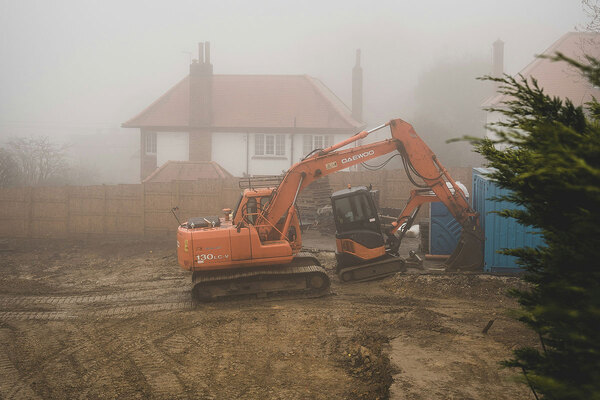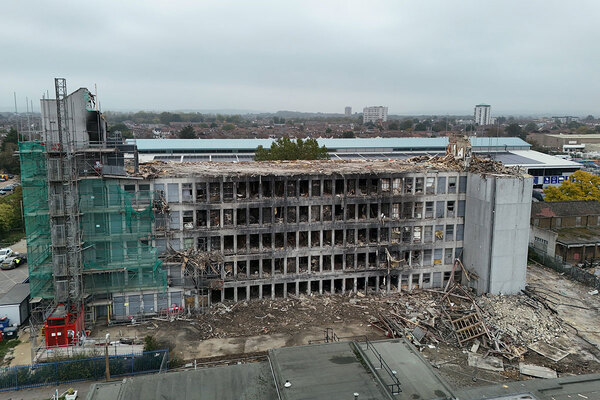You are viewing 1 of your 1 free articles
Health and housing: turning words into action
A new parliamentary report shows that the link between housing and health is clearer than ever, writes Inside Housing columnist Jules Birch

Health and housing have been inextricably linked since the first council housing was built in the late 19th century.
Whether it is homes or the places that they are a part of, the evidence of the strong links between housing and health has probably never been clearer, as demonstrated by a report from the Health and Social Care Committee last week.
We’re all familiar with the health arguments made by the housing sector, as well as those on health inequalities made by the Marmot Review in 2010. People living in the poorest neighbourhoods in England will, on average, die seven years earlier than those living in the richest ones.
So it’s interesting to see them being reflected back by an all-party committee with a Conservative majority. Seen from this perspective, the costs of poor homes and poor places fall on the Department of Health and Social Care, but most of the powers to do something about it rest with other departments.
On housing in particular, the committee heard evidence about the health effects not just of quality of homes and the hazards within them but also of insecurity of tenure and overcrowding.
‘Poor housing’ – homes with a ‘significant’ Housing Health and Safety Rating System hazard – costs the NHS at least £2bn a year and even that is probably an under estimate. The private rented sector accounts for more than a quarter of those costs.
The report is of course being published just as the Department for Levelling Up, Housing and Communities (DLUHC) is consulting on major improvements to the health and safety of social housing via Awaab’s Law. The committee welcomes the proposals to set strict time limits to investigate and fix major hazards and to allow failing landlords to be taken to court and ordered to pay compensation to tenants.
“‘Poor housing’ – homes with a ‘significant’ Housing Health and Safety Rating System hazard – costs the NHS at least £2bn a year”
However, it notes pointedly that the government’s own figures shows that Category 1 damp and mould hazards are 18 times more likely to be found in the private rented sector (3.6% of homes) than in social housing (0.2%). It recommends that the government should act quickly on social housing and explore how similar safeguards can be extended to private tenants.
On housing quality more generally, the DLUHC is already committed to reviewing and updating the Decent Homes Standard for social housing and to extending it to the private rented sector.
But the implementation of that has been continually delayed. The committee notes that the 2020 Social Housing White Paper first promised the review and that the 2022 Levelling Up White Paper committed to halving the number of non-decent homes in the social and private rented sectors by 2030.
The review was relaunched in July 2023 with a new draft Decent Homes Standard promised “later this year” and in October 2023, the government promised to include the private rented sector “when parliamentary time allows”. It is now January 2024, the draft has not been published, time has not allowed and it is running out ahead of the general election.
As the committee points out: “Recent high-profile cases involving tenants in social housing have demonstrated that the health impact of poor-quality housing can be catastrophic. Over three years after the government first committed to review and then extend the Decent Homes Standard to the private rented sector, no legal minimum quality standard exists to protect tenants in private rentals.”
The chair of the committee, Conservative MP Steve Brine, accuses the government of “dragging its feet” on the Decent Homes Standard and calls for a clear timetable to update it and extend it to the private rented sector.
But the health impacts of housing quality are about more than just immediate hazards, and the committee also heard evidence about new homes converted via permitted development rights.
“No matter how strong the evidence, turning it into action has been a problem ever since the health and housing became the responsibility of two different government departments”
It welcomes new minimum standards on space and light, but argues that “they are also an exception: adherence to any kind of quality standard is voluntary for the vast majority of developments and dwellings”.
The committee is not too happy about the quality of the places either. The MPs criticise the “disappointing missed opportunity to strengthen the consideration of health and well-being” in the new National Planning Policy Framework and the loss of a Healthy Places team with a clear remit to support healthy development when Public Health England was abolished in 2021.
No matter how strong the evidence, turning it into action has been a problem ever since the health and housing became the responsibility of two different government departments.
The committee points out that the benefits of building healthier places go far beyond the Department of Health and Social Care and require buy-in from other departments, while the problems caused by unhealthy places are felt across society and will require long-term thinking and whole government solutions including commitment from the very top.
In an election year, the chances of any of these arguments making much immediate difference seem at best low. Looking to the future, though, they look perfectly suited to a “mission-driven” Labour government with no money to spend.
Sign up for our asset management newsletter

Already have an account? Click here to manage your newsletters







